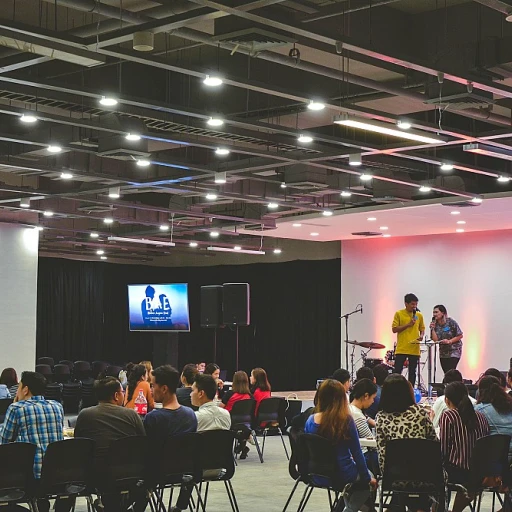
Key Responsibilities of a Maintenance Technician
Essential Duties and Responsibilities
The role of a maintenance technician is multifaceted, involving a wide range of tasks that require both technical skills and problem-solving abilities. These professionals work diligently to ensure that equipment and systems operate efficiently and effectively.
- Routine Maintenance: Technicians are responsible for conducting regular inspections and preventative maintenance on electrical and mechanical systems. This helps prevent costly breakdowns and ensures the longevity of equipment.
- Troubleshooting: When an issue arises, maintenance technicians must quickly diagnose the problem. This requires a solid understanding of both the electrical systems and mechanical systems involved.
- Repairs and Replacements: Once a problem is identified, technicians are tasked with repairing or replacing faulty equipment components. This process can involve complex mechanical procedures that demand excellent communication skills and technical expertise.
- Documentation: Keeping accurate records of maintenance activities, including completed repairs and changes in maintenance procedures, is crucial. This documentation plays a key role in ongoing maintenance management and compliance.
Environmental and Safety Considerations
Maintenance technicians must always prioritize safety while performing their duties. Compliance with safety standards is non-negotiable, as they work with potentially hazardous systems and equipment machinery. Adherence to safety protocols is crucial to prevent accidents and ensure a safe working environment.
As the responsibilities of a maintenance technician grow in complexity, it is increasingly important for human resources to adapt their job descriptions and recruitment strategies. This can involve integrating HRIS in the recruitment process to better identify those with the requisite skills and qualifications, and providing targeted training and development opportunities to those already in the role. Understanding these key responsibilities allows organizations to enhance their maintenance procedures and optimize efficiency in technical operations.
Skills and Qualifications Required
Essential Skills and Qualifications for a Maintenance Technician
For anyone looking to enter the maintenance technician field, gaining the right skills and qualifications is crucial. A maintenance technician is expected to work on a variety of equipment systems, including both electrical and mechanical systems. It is important for technicians to be well-versed in routine maintenance, preventative maintenance, and maintenance procedures, whether they are dealing with apartment maintenance or large-scale equipment machinery. Here are key competencies these professionals should have:
- Technical Skills: Proficiency in diagnosing and repairing both electrical and mechanical systems is essential. Maintenance technicians should be comfortable performing maintenance tasks involving complex equipment machinery.
- Problem-Solving Abilities: Technicians must have strong problem solving skills to quickly and effectively address issues that arise, minimizing downtime and ensuring that all systems function efficiently.
- Communication Skills: Good communication skills are important for discussing maintenance tasks and sharing updates with the team or management. This ensures everyone is on the same page regarding work progress and challenges.
- Safety Awareness: As safety is paramount in this role, understanding and adhering to safety protocols is crucial. Technicians need to prioritize safety compliance while performing their tasks.
- Qualifications: A relevant vocational or technical degree can bolster a technician's qualifications, though some roles may accept equivalent on-the-job training or experience.
Qualifications and skills outlined in job descriptions can also vary. Job seekers can utilize job boards to find openings that match their qualifications and career aspirations. To better understand recruitment trends, you might explore various categories of human resources, which can provide deeper insights into enhancing your career as a maintenance technician.
Having a deep understanding of these skill sets not only prepares individuals for the role of a maintenance mechanic but also positions them for growth opportunities within the field, as discussed in other sections of this article. The right combination of training, qualifications, and on-the-job experience can set the foundation for a successful career in maintenance.
The Importance of Safety and Compliance
Ensuring Safety and Compliance in Maintenance Roles
Working as a maintenance technician involves more than just technical prowess. Safety and compliance are critical components of this profession, especially due to the inherent risks associated with handling electrical systems, mechanical systems, and various maintenance tasks. Protective measures are not only a best practice but a requirement that every technician must adhere to, ensuring a safe working environment for themselves and their colleagues.
One of the foundations of safety in this field is thorough training in maintenance procedures and the use of equipment. Maintenance technicians must undergo rigorous safety training sessions to understand the potential hazards involved in routine maintenance and how to effectively mitigate them. This includes understanding how to safely perform preventative maintenance and problem solving in emergency situations. Additionally, staying up to date with industry regulations and standards is crucial.
Safety programs designed for technicians typically encompass several aspects:
- Compliance with local, state, and federal regulations
- Effective use of personal protective equipment (PPE)
- Regular safety audits and inspections of maintenance work processes
- Documentation of maintenance procedures and incidents
- Ongoing safety training and certifications to ensure all team members are knowledgeable about the latest safety protocols
Moreover, a robust communication skills framework is crucial. It allows for maintenance procedures to be clearly explained and understood by the entire team, facilitating a collaborative approach to safety and compliance. The role of a maintenance technician is not only about technical expertise but also about fostering a culture of safety awareness and continual improvement.
As the profession evolves, HRIS platforms play an essential role in streamlining safety training schedules, maintaining accurate records of compliance, and facilitating the recruitment of skillful candidates who prioritize safety in their work. For those interested in delving deeper into how systems like HRIS can assist in maintaining compliance, understanding leave of absence policies in California can provide valuable insights into the regulatory framework that some technicians may need to navigate.
Integrating HRIS in the Recruitment Process
Transforming Recruitment with HRIS
Efficient recruitment is crucial for maintaining a skilled workforce, especially when it comes to filling the role of a maintenance technician. This specialized technician job requires a keen understanding of both electrical and mechanical systems, paired with the ability to perform a wide array of maintenance tasks. Therefore, integrating a Human Resources Information System (HRIS) can be highly beneficial to streamline the recruitment processes. Utilizing an HRIS allows organizations to effectively manage job descriptions, maintain comprehensive job boards, and track applications not only for a maintenance technician role but also for other technical positions. With robust HRIS capabilities, hiring teams can craft precise job descriptions that accurately reflect the qualifications needed to perform essential maintenance tasks like preventative maintenance and routine maintenance on equipment machinery and systems. Here's how HRIS contributes to the recruitment of maintenance technicians:- Automated Job Descriptions: HRIS can store and manage detailed job descriptions for various roles, ensuring consistency and accuracy across job postings. This helps in attracting candidates with the right blend of skills and experience.
- Centralized Candidate Database: By utilizing HRIS, companies can maintain a centralized repository of candidates, making it easier to track applicant progress and evaluate communication skills and problem-solving abilities during the hiring process.
- Streamlined Interview Process: Built-in features can assist in formulating relevant interview questions tailored to assess a candidate's expertise in maintenance procedures, and technical skills in both electrical systems and mechanical systems.
- Performance Tracking: Once hired, the system can be used to track ongoing training and development, ensuring technicians remain up-to-date with best maintenance practices.
Training and Development Opportunities
Enhancing Skills Through Training and Development
For maintenance technicians, continuous improvement of their skills and knowledge is essential. As the landscape of equipment systems, electrical systems, and mechanical systems evolves, technicians must stay updated with the latest maintenance procedures and technologies.- Hands-on Training: One of the most effective methods for skills development is hands-on training. This approach allows technicians to directly interact with equipment machinery, performing maintenance tasks and gaining practical experience.
- Workshops and Seminars: Attending workshops on routine maintenance or preventative maintenance can provide technicians with valuable insights into industry best practices and safety protocols. These sessions also offer a platform to ask questions and solve problems in real time.
- Online Courses and Certifications: A wide array of online courses can help technicians acquire specific skills related to their role. Certifications in electrical maintenance, mechanical maintenance, and other specialized areas can enhance their career prospects and job descriptions.
- Development Programs: Employer-sponsored development programs are designed to boost technical and communication skills. These initiatives prepare technicians to perform their job more efficiently while aligning with employer standards and expectations.
Challenges and Solutions in HRIS Implementation
Addressing Common Hurdles in HRIS Deployment
When implementing Human Resources Information Systems (HRIS) for hiring maintenance technicians, various challenges arise that can impact the effectiveness of the entire recruitment process. Here, we will explore some of these hurdles and propose potential solutions.- Integration with Existing Systems: Incorporating HRIS into current systems such as those for managing electrical and mechanical equipment can be tricky. Ensuring seamless integration requires thorough planning and a clear understanding of both the HRIS and existing systems. Collaborative efforts with IT departments can vastly improve the chance of successful integration.
- Data Accuracy and Completeness: HRIS relies on accurate data entry for maintenance technician job descriptions, skills, and qualifications. Incomplete or incorrect data can lead to misleading insights and decision-making errors. Regular checks and training sessions to ensure data integrity can mitigate this issue.
- User Resistance and Training Needs: Maintenance teams might resist transitioning to new HRIS tools due to lack of familiarity or perceived complexity. Comprehensive training programs can familiarize them with the safety compliance features and job boards functionalities, enhancing their confidence in using the system efficiently.
- System Updates and Maintenance: Just like routine maintenance is required for equipment machinery, HRIS also requires regular updates to align with the latest technological advancements. Routine monitoring and preventative maintenance of the system can prevent unforeseen issues and ensure smooth operation.
- Resource Allocation and Cost: Implementing HRIS can be resource-intensive, demanding both time and financial investment from organizations. Conducting a cost-benefit analysis and establishing a budget can ensure resources are allocated efficiently, focusing on long-term benefits rather than immediate expenses.













